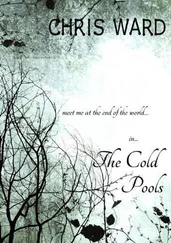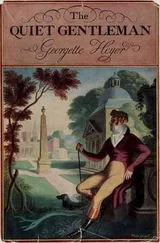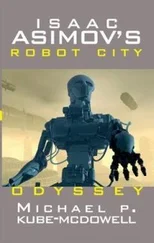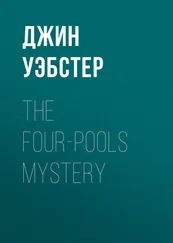“No.”
He pulled more volumes from the shelf, carefully making a stack in his arms. “I want to see them now.”
“There is one condition. Mr. McCutcheon asked that you read them all, or not at all.”
That brought him up short. “Why?”
“I’m sorry, Christopher. I don’t know.”
Though the archive had been opened to Christopher, he saw very quickly that it had not been created for him. Save for a few decades-old “letters” from a father to his new son, it was not even addressed to him.
And instead of the systematically organized, theatrically perfect deathbed soliloquy Christopher had expected, the archive was a fragmented and incomplete potpourri, a scattering of the thoughts and reflections and memories of a man of complexity. It was his attic, the bottom drawer of his rolltop desk, the notes scribbled in the margins of his days.
Together, they said, “This was my private world, which I never shared with you in life. This is who I was.”
Christopher rooted himself in the seat for two hours, reading his way through the first six volumes of archiviana. Then, as dusk was settling over the ridge, he pushed back from the desk and retreated to the kitchen to fortify his body with its first food since breakfast.
He also needed the break to fortify his determination. Reading William’s private archives was akin to raking a mine field in search of a lost treasure. Dangerous forces were concealed beneath the surface. Inevitably, he would stumble on them. There was no way to predict when, no way to prevent the intersection, no way to protect himself. Not if he wanted to reclaim the treasure. Not if he was to honor his father’s final request.
So far, there had been more wonder than pain. He had found nothing about Sharron, nothing about Deryn. He did find a self-conscious episodic letter which began “Dear Christopher” and spanned more than four years. The contents of the letter explained little and illuminated little more. But it was fascinating all the same, for it was filled with details of a sort that he would not have thought his father would take the trouble to notice.
But he had taken the trouble, not only to notice, but to record.
The letter began two years after Christopher was born, and the tone was both self-conscious and oddly apologetic, as though his father felt he had been caught procrastinating. It was written in simple language, as though his father was speaking to the child he was, not the adult he would be.
But it offered a snapshot, all the same: a portrait of a cheerful, self-amusing two-year-old who knew the alphabet and could count to thirty, and who liked to “play a game”—saying words and seeing them appear on the screen—on the old computer in Lynn-Anne’s room.
Because such things were important to his father, Christopher expected the catalog of the hundred and one landmark achievements of childhood—the ever-changing answers to a parent’s “Do you know what my boy can do now?” But he was surprised to hear about the soft-stuffed gray mouse that went everywhere with him until it disappeared on a family trip to Long Beach— and about Traveler Pup, the bow-tied hound who succeeded Friend Mouse.
Friend Mouse was beyond remembering. But Christopher remembered Traveler Pup with a twinge and a tug. He could see it, worn and worried, its bow tie gone, its golden fur gone gray with handling, lying in the basket of toys in the corner of his room on B Street. But he could not remember what had become of it. Surrendered without a thought during a housecleaning, most likely, the emotion imbued in it leached away by time.
The letter’s entries were spotty, tantalizing, maddening. Snapshots. An imaginary friend named Birdy, who flew away in the winter and then came back to live in a ground nest Christopher built for him beside the house. Christopher forming letters on the white brick of the backyard patio from twigs collected in the yard and broken to size. Even his own words, unremembered but resonant:
“Do you know what, Dad? It takes a long time trying to grow up. It goes age to age, and I want to skip some ages.”
That was the one that drove him away to regroup, that threatened to upset his precarious balance. The dirty little secret of growing up, Meyfarth had said. And Christopher had been in such a hurry to learn it.
Presently, he returned to the comsole and read through the last of the letter. It ended without explanation or closure in the middle of Christopher’s sixth year, its last anecdotes—of his trials with an older and more aggressive neighbor child—offering no clue as to why the project was abandoned. The next item Lila presented was date-stamped a full three years later.
“Wait—what’s going on here?” Christopher said in surprise. “Isn’t there anything between this and the last?”
“No, Christopher. I’m proceeding in strict chronological order, as Mr. McCutcheon directed.”
“Show me a file directory.”
“I’m sorry, Christopher. I don’t have a directory available.”
Lila’s mechanical politeness was becoming an annoyance. “I can take these somewhere else, you know.”
“Yes, Christopher. But you would not be able to read the files without my assistance.”
“Then I’ll take a can opener to you first and see how you do it,” Christopher said irritably, coming up out of the chair and then kicking it out of his way.
He walked to the window and stood looking out through his own reflection, his hands tucked into his back pockets. House rules, he thought. Still his father’s house, still his father’s rules.
“All right,” he said finally. “He wants you holding my hand, I guess that’s the way it has to be. Tell me this. Is there more like what I was reading coming up? More addressed to me? If so, I want to skip ahead to it.”
“Christopher, there are very specific restrictions on how I may access this material. I may not look ahead, skip ahead, or redisplay already viewed sections. I may not store, mail, or copy any part of it, or allow it to be filmed off the display.”
He sighed and made a reluctant pilgrimage back to the chair. “Do you have any idea why there’s such a gap?”
“I’m sorry, Christopher. I don’t. Is it important?”
“You tell me,” he said. “Continue, please.”
Before long, Christopher was convinced that it was important. For, in everything that followed, he found himself discussed in the third person, rather than addressed in the first. It seemed that—for some reason—any thought of him ever seeing his father’s words had vanished in the interim.
But, curiously, Christopher discovered his father spoke most clearly when he was not speaking to Christopher directly. His father’s voice became a more familiar one, his language liberated from the prison of childspeak. And though there were as many gaps and mysteries as before, the thoughts he did record seemed less guarded, closer to the heart.
I can see Sharron in his eyes and hear Deryn in his words. They are both inside him, pulling at him to follow , his father had written just weeks after Deryn broke her contract and left for Sanctuary. Christopher thought he read both fury and fear in his father’s words, the latter an unexpected complexity. His father afraid. It was nearly an oxymoron, as bewildering as burning water.
Infuriatingly, that brief entry was the only allusion to Deryn’s departure. It was, in fact, one of the few times either woman was named, and—to that point at least—the only time they were spoken of together. For all their presence in the archives, it was almost as if Christopher’s mothers had never existed.
He had waited in vain for the kind of reminiscence of Sharron that he had sought from Lynn-Anne, for the kind of reassurance that would erase his sister’s bitterness—and his own ambivalence—from his mind. Through the long hours leading up to midnight, he had kept wondering when something would touch his still-untapped pain and break loose the logjam of anger and grief he could sense but not reach.
Читать дальше
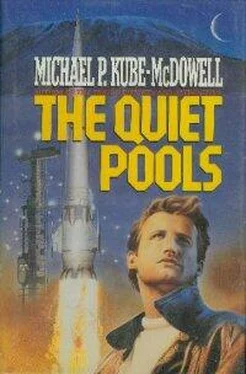
![Nick Cracknell - The Quiet Apocalypse [= Island Zero]](/books/28041/nick-cracknell-the-quiet-apocalypse-island-zero-thumb.webp)



